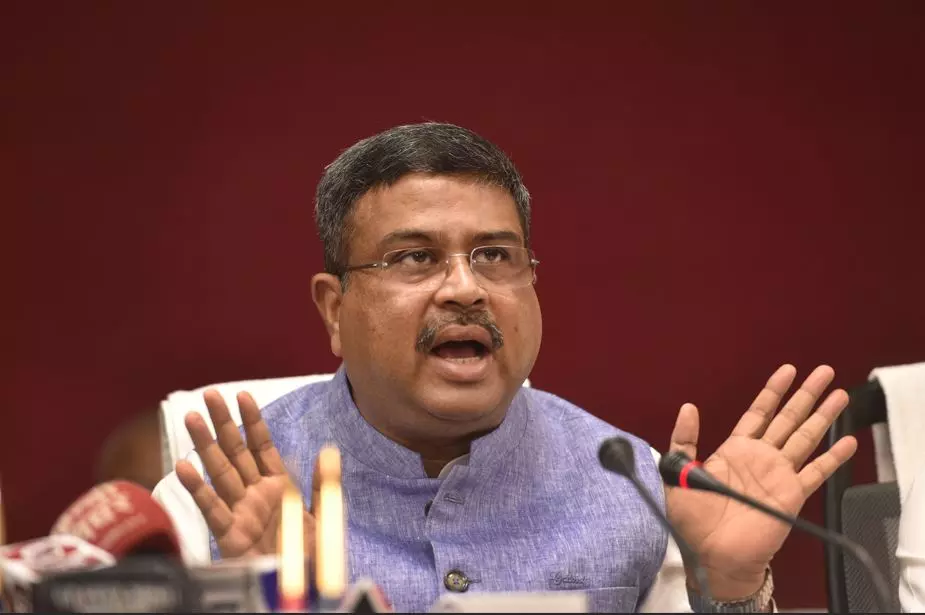
New Delhi: NCERT textbooks for some classes will be cheaper from next year, Union Education Minister Dharmendra Pradhan announced on Tuesday. The National Council of Educational Research and Training (NCERT), which currently prints five crore textbooks annually, is working to increase its capacity to 15 crore. From next year, he said.
The minister also informed that the new textbooks will be available from the academic session of 2026-27 according to the supplementary syllabus of classes 9-12.
“In the coming academic year, NCERT will publish 150 million quality and affordable books… At present, it is publishing nearly 50 million textbooks. Earlier there was concern about demand and supply of textbooks, but now it will be addressed.” Pradhan told reporters.
“Due to the high volume of book printing, the price of textbooks of some classes will be reduced, but the price of any class will not be increased so as not to burden the parents financially,” he said.
The minister informed that the process of updating the textbooks according to the new National Curriculum Framework (NCF) is underway.
“The process is on and the textbooks for classes 9-12 will be ready in the 2026-27 academic session,” he said.
“New textbooks have been provided for seven out of 15 classes, with textbooks for four more classes coming in the coming academic year. Textbooks for Arts, Physical Education and Welfare (Class 3-8) and Vocational Education (Class 6-up to 8) Textbooks in all scheduled Indian languages are being prepared and made accessible through online platforms,” the minister said.
Pradhan informed that the number of schools affiliated to the Central Board of Secondary Education (CBSE) has increased from 14,974 in 2014 to 30,415 in 2024.
“Admission, transfer and CBSE affiliation processes are now fully online. Kendriya Vidyalayas, Navodaya Vidyalayas and CBSE are operating 100 percent on e-office platforms. Schools offering vocational courses have increased from 960 in 2014 to 29,3242 students. Skill education has increased from 58,720 in 2014 to over 30.8 lakh in 2024,” he said.
In a separate press conference, Union Minister of State for Aviation Muralidhar Mohal said that there has been an unprecedented development in education infrastructure in the last 10 years.
“…as a result, seven Indian institutions – IITs Delhi, Kharagpur, Kanpur, Mumbai, and Madras, IISc (Indian Institute of Science) – Bengaluru, and University of Delhi – have made it to the prestigious QS World University Rankings,” Mohol said. said